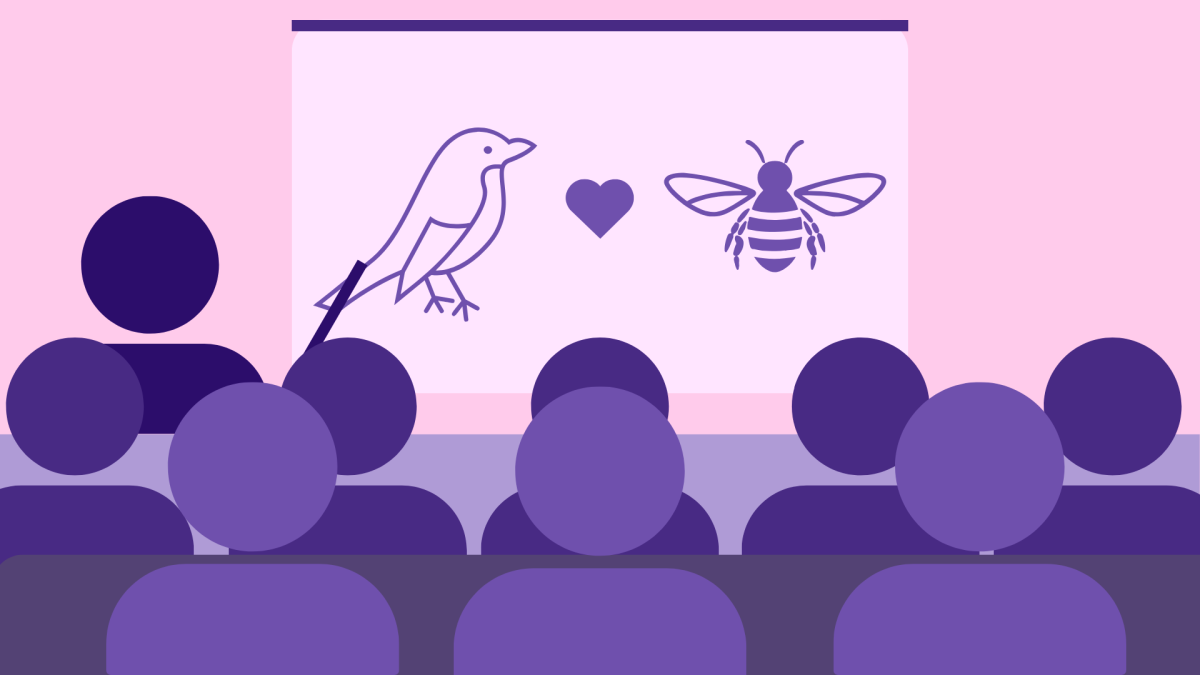While thoughts of chocolate, flowers and romantic nights circulate the minds on campus, NC State offers classes for students to learn more about sex and love in a social and biological context.
Kama Kosenko, an associate professor of communication, teaches COM 498: Sexual Communication. The class addresses how people approach conversations about sex and topics like sex education in schools and sexuality in media.
“The class covers a range of topics that are relevant to how we talk about sex,” Kosenko said. “Things like how we talk about sex with our family members, the birds and the bees talk that some people may have had, how we talk with partners about our sexual interests or our resistance to sex, how we talk to people about condoms or other ways of being safe and using protection.”
As well as learning about a variety of ways to speak about sex, students finish the semester with a public project presentation.
“In the past, we’ve done our final project event in the Caldwell Lounge and had students put on these massive displays of dildos and other sex toys about 10 feet from the dean’s office,” Kosenko said. “They’re totally flummoxed talking about sex, even when they have people walking by. So it’s fun to see just how easy it becomes for students by the end of the semester.”
Kosenko said she wants students to know that talking about sex is important, regardless of how vulgar the words may be.
“We have, as a society, deemed some words to be bad words or swear words, largely because they have some relationship with sex,” Kosenko said. “Social norms that dictate you don’t say things like ‘fuck’ can affect how people talk to their sex partners, potential sex partners and their kids about sex. So I would encourage people to be willing to talk about sex, and be open to using whatever language that they’re comfortable with even if society deems that language to be bad in some way.”
Kosenko said she encourages students who are willing to push themselves outside of their comfort zone to take Sexual Communication.
“If you are interested in learning more about talking about sex or if you’re just uncomfortable about the subject, and willing to push your own boundaries, then you’re the exact kind of student I would love to have in my class,” Kosenko said. “Most of the students I have tend to be people who already have a certain comfort level. And while I love all the students that I have the opportunity to teach, I feel like the course would make the biggest difference among those who are the least comfortable talking about sex and the least comfortable talking about the topic in general.”
John Godwin, a professor of biological sciences, teaches BIO 444: The Biology of Love and Sex. Godwin said the class is largely focused on different organisms and their reproductive biology.
Godwin said speaking about sex and love in biology teaches students about animals’ methods of attracting mates, as well as their evolution.
“It’s a nice way to get students to think about evolutionary pressures and adaptations that help more animals successfully reproduce,” Godwin said. “Think about things like sexual selection and natural selection and how those interact with each other to help determine things. We get colorful ducks and extra-bright tiger swallowtails flying by in the spring. Those are sexually selected traits.”
While evolutionary impact is one takeaway students can have, Godwin said looking into sex and love in organisms is a way to learn more about the different aspects of the biology involved in evolution.
“It really helps to think about it at multiple levels,” Godwin said. “At the evolutionary level, at the physiological level and at the genetic level. It’s really only by combining insights from all those different perspectives that you can really help to begin to understand why we see what we see today.”
While studying sexual biology uncovers a variety of interesting adaptations, one thing Godwin said researchers are still working to crack is the social aspect of these animals’ behaviors — in other words, love.
“Time will tell and research is slow, but I think we’re starting to see some nice indications from what we can understand,” Godwin said. “I don’t know if we call it love, but we can call it attachment, I think. What happens when people form an attachment or when they’re not able to? I’d say there’s a lot of work to do.”
Even through research, however, Godwin said there are aspects of love that biologists will never understand through biology.
“It has very, very human aspects to it that, at least in the foreseeable future, we’re not going to be able to get out through biology,” Godwin said. “And I’m kind of happy about that. I find it fascinating, but it’s also nice to think there might be something that the poets are going to tell us more about.”













